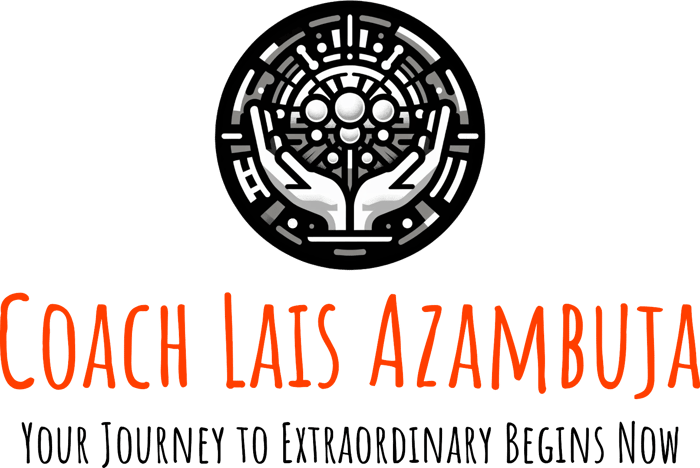The Whispers Within:
Trusting Yourself and Unlocking Your Intuition
1/31/20253 min ler
In a world saturated with external opinions and pressures, learning to trust the quiet voice within can feel like a radical act. Yet, it's precisely this inner knowing, our intuition, that guides us towards our most authentic selves and helps us navigate life's complexities with greater clarity and confidence. Developing this trust is a journey, but the rewards are immeasurable.
Intuition isn't some mystical superpower reserved for a select few. It's a natural human capacity, a subtle form of intelligence that draws upon our experiences, emotions, and subconscious processing to provide insights and gut feelings. Think of those times you just knew something, even without logical proof. That's your intuition at work.
So, how do we cultivate this inner wisdom? It starts with listening. In the midst of daily noise, carving out moments of quiet reflection is essential. Meditation, journaling, or simply spending time in nature can help us tune out distractions and tune into our inner whispers.
Pay attention to your gut feelings. That flutter in your stomach, that nagging feeling, or that sudden flash of insight – these are often the language of your intuition. Don't dismiss them just because they don't align with logic or external expectations. Instead, explore them with curiosity. Ask yourself, "What is this feeling trying to tell me?"
Developing self-trust is intrinsically linked to intuition. The more we trust ourselves to make sound decisions, the more we recognize and value our inner guidance. This involves acknowledging our strengths, accepting our imperfections, and learning from our mistakes. It's about building a solid foundation of self-acceptance and self-compassion.
Don't be afraid to experiment. Try making small decisions based on your intuition and observe the outcome. The more you see your intuition leading you in the right direction, the stronger your trust in it will become.
Trusting yourself and developing your intuition is a lifelong practice, a journey of self-discovery and empowerment. It's about recognizing that you already possess the wisdom you need to navigate your life path. By learning to listen to the whispers within, you can unlock your full potential and create a life that is truly aligned with your authentic self.


We often hear about the importance of self-care, healthy relationships, and fulfilling careers for a happy adult life. But beneath the surface of these external factors lies a crucial, often overlooked element: the well-being of our inner child. This inner child, a metaphorical representation of our childhood experiences and emotions, holds the key to our emotional resilience, self-worth, and ultimately, our happiness and contentment as adults. Prioritizing its safety is paramount.
Our childhood experiences, both positive and negative, shape the foundation of our emotional landscape. Unresolved traumas, unmet needs, or a lack of consistent love and support can leave lasting imprints, manifesting as anxiety, insecurity, and difficulty forming healthy attachments in adulthood. These unresolved issues become the "unattended garden" of our inner child, overgrown with weeds of fear, shame, and self-doubt.
True adult happiness isn't about ignoring these weeds; it's about tending to the garden, nurturing the vulnerable inner child within. This begins with recognizing its existence and validating its experiences. Acknowledging the pain, fear, or loneliness our younger selves may have endured is the first step towards healing. It's about offering the compassion and understanding we may have lacked as children.
Creating a sense of safety for our inner child involves several key practices. Self-compassion is paramount. Treating ourselves with kindness, especially during moments of struggle, mirrors the loving care a child needs. It means acknowledging our imperfections without harsh judgment and offering ourselves forgiveness for past mistakes.
Furthermore, establishing healthy boundaries is crucial. This involves protecting our inner child from situations or relationships that replicate past hurts. It means saying "no" when necessary and prioritizing our emotional well-being. It's about creating a safe space, both internally and externally, where our inner child feels protected and valued.
Expressing emotions in healthy ways is another vital aspect of inner child safety. Journaling, art, music, or talking to a trusted therapist can provide outlets for the emotions our inner child may have suppressed. It’s about giving voice to the unspoken needs and feelings that may be influencing our present-day behaviors.
Re-parenting, a concept often used in therapy, involves giving our inner child the love, support, and reassurance it may have lacked. This might involve visualizing ourselves comforting our younger selves, affirming our worthiness, or making choices that honor our inner child's needs for play, creativity, and joy.
Ultimately, prioritizing inner child safety isn't about dwelling in the past; it's about creating a more secure and fulfilling present. By nurturing the seed of our inner child, we cultivate the roots of our happiness, allowing us to blossom into our full potential as adults. It's the most important investment we can make in our long-term well-being and contentment.
